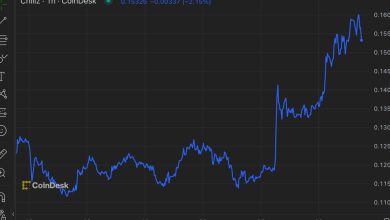Crypto Founder Defends FBI Involvement After Developer Accidentally Causes Blockchain Split

On Friday, Cardano’s mainnet experienced a significant chain split after a single malformed delegation transaction exploited a vulnerability in the network’s node software. The issue stemmed from a deserialization bug that had been present since 2022, allowing the transaction to pass validation on newer nodes while being rejected by older ones. This created two incompatible ledger states, fragmenting the $14 billion blockchain into parallel chains.
According to an incident report from Cardano ecosystem organization Intersect, block production continued uninterrupted on both chains, and some transactions appeared identically across them. However, the split led to disruptions in decentralized finance (DeFi) protocols, conflicting data on block explorers, and less reliable transaction confirmations.
Major exchanges responded by halting ADA deposits and withdrawals. Coinbase suspended operations for approximately 14 hours. Other platforms, including Upbit and Kraken, implemented shorter pauses.
The native Cardano cryptocurrency, ADA, fell as low as $0.35 before recovering to around $0.42 by Sunday.
Development teams from Input Output Global (IOG), the Cardano Foundation, Intersect, and EMURGO quickly formed an emergency response group. They deployed patches within three hours, and the network achieved consensus around a single blockchain after node updates.
Sorry (I know the word isn’t enough given the impact of my actions) Cardano folks, it was me who endangered the network with my careless action yesterday evening. It started off as a “let’s see if I can reproduce the bad transaction” personal challenge and then I was dumb enough
— Homer J (AAA) (@KpunToN00b) November 21, 2025
Hours after the split, X user “Homer J” claimed responsibility, describing the event as a “careless” personal experiment. In a public apology, Homer J explained that they had attempted to replicate a testnet issue but relied on untested AI-generated instructions for isolating their server, without first validating on the testnet. “I’m ashamed of my carelessness and take full responsibility,” they wrote.
However, Cardano co-founder Charles Hoskinson, who was also a co-founder of Ethereum, characterized the incident as a “premeditated attack” by a disgruntled stake pool operator. In X posts, he stated that the actions were “absolutely personal” and confirmed that the FBI had been notified, citing the network’s constitution as a user agreement that obligates reporting such disruptions.
The decision to involve federal authorities prompted an immediate backlash within the development community. Roman Kireev, a senior Plutus language developer at IOG, announced his resignation on Monday. Kireev, who has contributed to many of Cardano’s computational layer security improvements, expressed concerns over potential legal risks for routine testing errors. “I didn’t realize there was a risk of getting raided by the authorities because of that + saying mean things on the Internet,” he posted.
This is complete bullshit and ridiculous
— Charles Hoskinson (@IOHK_Charles) November 22, 2025
Kireev also noted that most vulnerabilities in the computational layer originated from his discoveries or ideas and indicated he would continue contributing to the ecosystem independently.
Hoskinson defended the FBI referral, arguing it was necessary to protect users’ assets under the network’s terms. “We have a duty to file a complaint and let them investigate,” he wrote, dismissing Kireev’s concerns as “complete bullshit and ridiculous.”
The Illusion of Decentralization in Crypto
The Cardano chain split lays bare a persistent tension in the crypto space: the gap between proclaimed decentralization and the centralized backstops that inevitably surface during crises. For all the rhetoric surrounding “trustless” crypto networks, projects often rely on coordinated interventions from a handful of key entities to restore order. Cardano’s rapid patch deployment, while effective, highlights the fragility of this hybrid approach, where a single point of failure can expose the network’s reliance on a core group of maintainers.
In other words, it’s difficult for crypto projects to claim decentralization when developers are this influential over the relevant node software. The centralized influence developers can have over a crypto network was perhaps most notably displayed in Ethereum’s response to The DAO hack, when node implementations were updated to support a fork to reverse the hack by default and exchanges were told by the Ethereum Foundation not to worry about supporting the version of the blockchain that did not implement the reallocation of funds away from the hacker.
Even Bitcoin has dealt with emergency situations via rather centralized methods, such as an inflation bug and an accidental chain split, in earlier days.
.@VitalikButerin @petertoddbtc @zcashco didnt you and the ethereum foundation tell exchanges not to list $ETC?
— Kyle Torpey (@kyletorpey) September 6, 2016
The developers behind Bitcoin Core try to avoid centralizing practices such as automatic updates and hard forks, and the potential risks associated with updating node software more generally are a key justification used by those who advocate for complete ossification of the Bitcoin protocol.
Cardano does plan to improve the decentralization of its development process and put it in the hands of ADA holders rather than founding entities like IOG. But it’s worth noting that governance via tokens is another common method of decentralization theater often used in crypto, as a report recently exposed in the case of crypto network TRON.
There is also a broader industry desire to blend the perks of centralized systems, such as reliability and ease of use, with the ideological appeal of decentralization. But true decentralization imposes strict trade-offs: users bear full custody and responsibility for their assets, with no central authority to intervene if things go awry.
Today’s sad state of “crypto”:
1. A somewhat major and supposedly decentralized network (Cardano) suffers an outage because someone who calls himself “krypto n00b” “accidentally” vibe-codes an exploit.
2. The network’s CEO: “I’m calling the FBI”.
🤦♂️🤪 https://t.co/JmetSeA0OS pic.twitter.com/6gJUGftN2G
— Nikita Zhavoronkov (@nikzh) November 22, 2025
In the past few weeks, widespread outages at cloud providers like AWS cascaded into downtime for numerous crypto platforms, revealing how much of the ecosystem depends on traditional infrastructure giants. And there now exists a more permissive crypto regulatory landscape under the Trump administration, which further incentivizes the use of decentralization theater as a means to an end. In this environment, blockchains increasingly serve as revenue streams for centralized fintech firms, sidestepping stringent AML/KYC requirements while harvesting fees from user activity.
Much of crypto’s infrastructure revolves around this dynamic, particularly stablecoins, which inherit much of the centralization of traditional banking apps, despite the claim that they are some sort of crypto innovation. With many leading applications built atop these centralized digital currencies, the sector finds itself increasingly divided between philosophical cypherpunks advocating for uncompromised sovereignty and growth-oriented developers chasing user adoption and profits.




